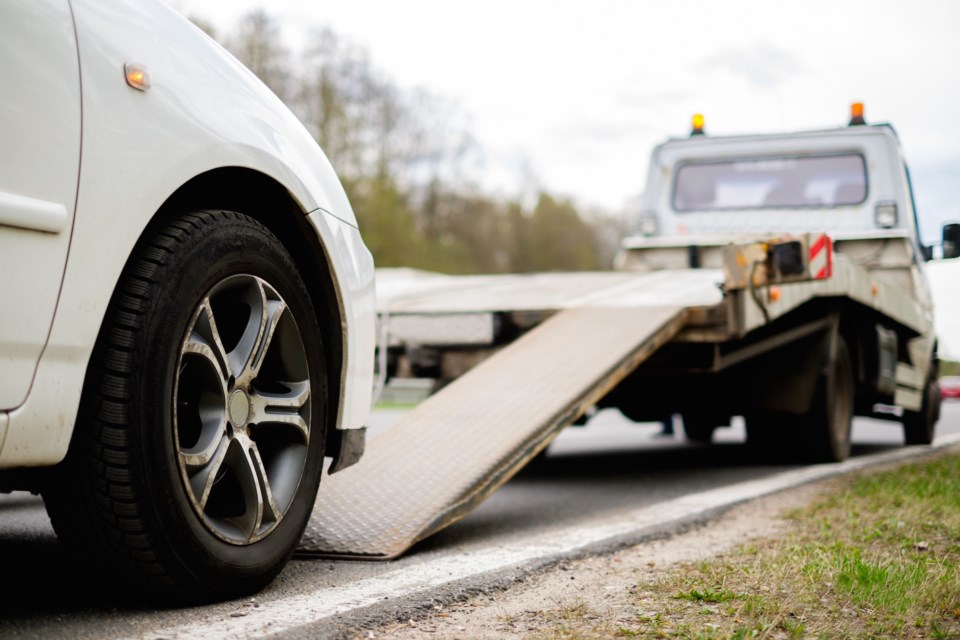East Algoma OPP is warning area residents that it does not approve tow truck drivers nor is it affiliated with any towing company.
The detachment has received reports that some tow truck drivers in the area are distributing business cards stating that they are an "Ontario Provincial Police Approved Towing Service."
"If you ask the police to contact a tow truck on your behalf, the OPP contacts a Towing Association that maintains a list of tow operators in the area," states a news release issued today. "When contacted, the next available tow is then called out by the Tow Association."
Full text of the news release issued by the East Algoma Detachment of the Ontario Provincial Police follows:
BLIND RIVER - Getting your car towed can turn into a nightmare if you don't know your rights. With more and more criminals looking to scam people at the roadside, find out what you can do to protect yourself.
The East Algoma Detachment of the Ontario Provincial Police (OPP), has received information of tow truck operators distributing business cards within the East Algoma OPP area stating they are an "Ontario Provincial Police Approved Towing Service."
The OPP wants to remind the public that the OPP does not approve tow truck drivers nor are they affiliated with them. If you ask the police to contact a tow truck on your behalf, the OPP contacts a Towing Association that maintains a list of tow operators in the area. When contacted, the next available tow is then called out by the Tow Association.
The OPP would like to offer some tips in knowing your rights when you've been in a collision so that you can protect yourself next time you're in need of a tow:
1. You have the right to decide who can tow your vehicle and to what location (unless otherwise directed by police).
2. Call your insurance company for direction on tow companies, repairs and car rentals.
3. A "permission to tow" form must be signed before towing starts.
4. The towing company must provide you with an itemized invoice before receiving payment.
5. You are entitled to a receipt for tow services rendered.
6. You have the right to pay by credit card if you choose.
7. Decline offers to store your vehicle in a tow compound unless directed by your insurer.
8. Never a sign a blank contract or take referrals from tow companies. Tow companies only tow.
In the event of a collision:
• Call your insurance company and use this form to record important details you may need for the police or to file an insurance claim.
• Keep a tip sheet in your car - just in case.
Call the police if:
• Someone is injured.
• You think any other driver may be guilty of a Criminal Code offence, such as impaired driving.
• You suspect you're the victim of a staged collision.
• There is damage over $2,000.
• There is damage to public and private property.
• The other driver fails to remain at the scene.
If it's safe, move your car to the side of the road. If you can't drive your car, turn on your hazard lights or use cones, warning triangles or flares.
When involved in a collision, determining fault is not your priority - your safety is.
Do not sign any documents regarding fault or commit to pay for the damages. Call your insurance representative for more information. Depending on the jurisdiction where your collision occurred, you may have to take your vehicle to a Collision Reporting Centre.
Record the details:
- Location of Collision
- Date
- Time
- Other vehicle(s)
- Name of driver(s)
- License Plate # of other vehicle(s)
- Contact information (phone # / e-mail)
- Driver's licence #
- Name of insurance company
- Insurance policy #
- Police officer(s) at the scene:
- Name(s)
- Badge number(s):
If safe to do so, you may take photos at the scene with your cellphone.
